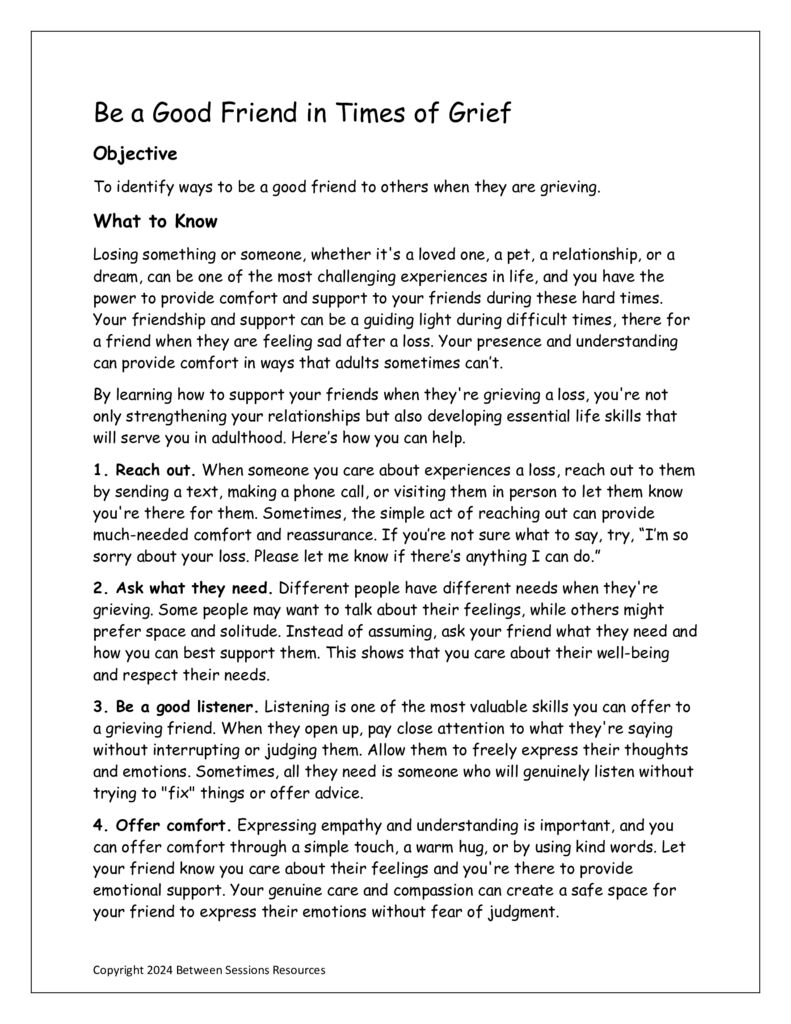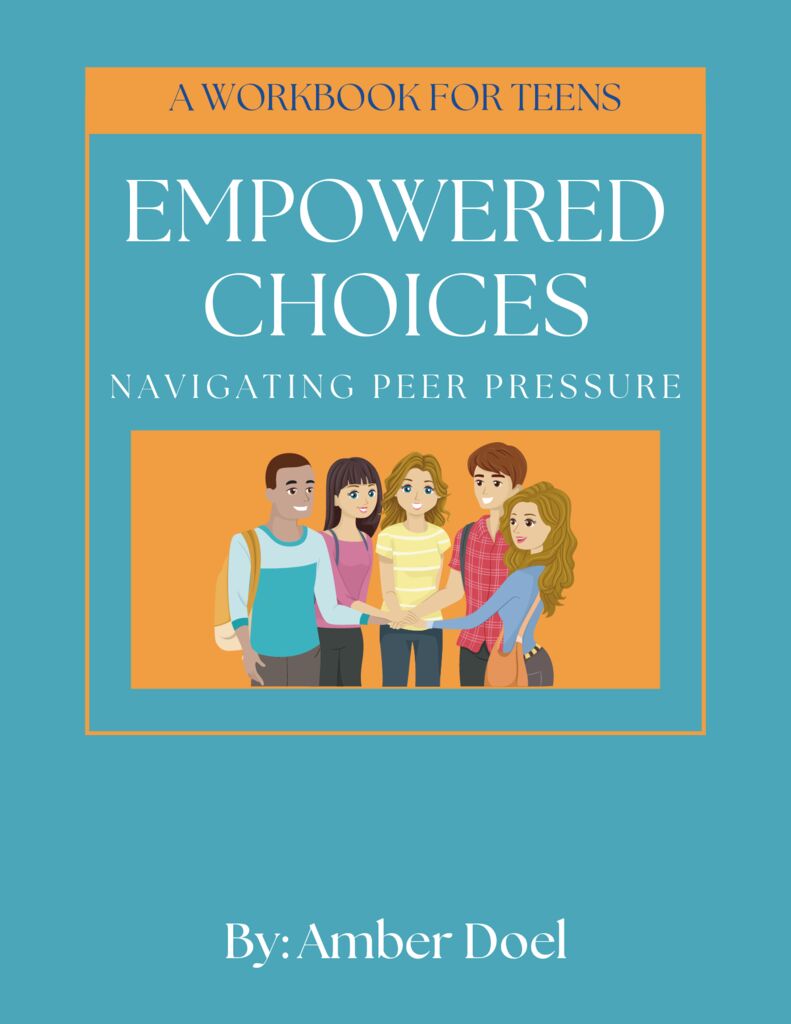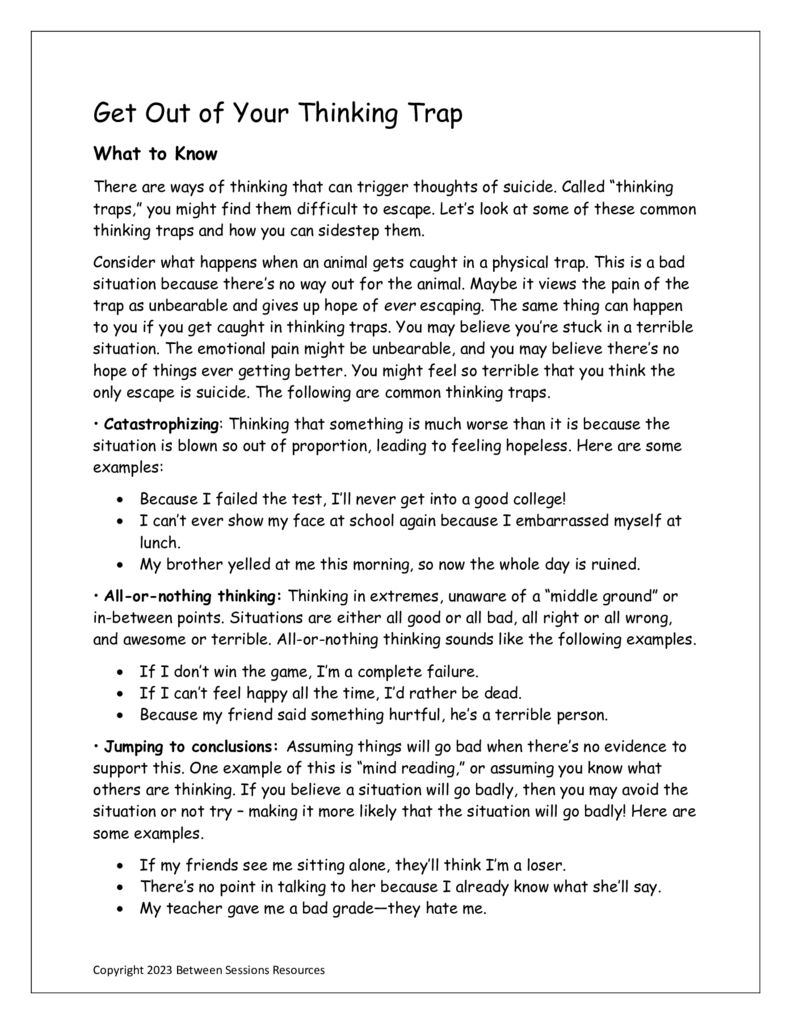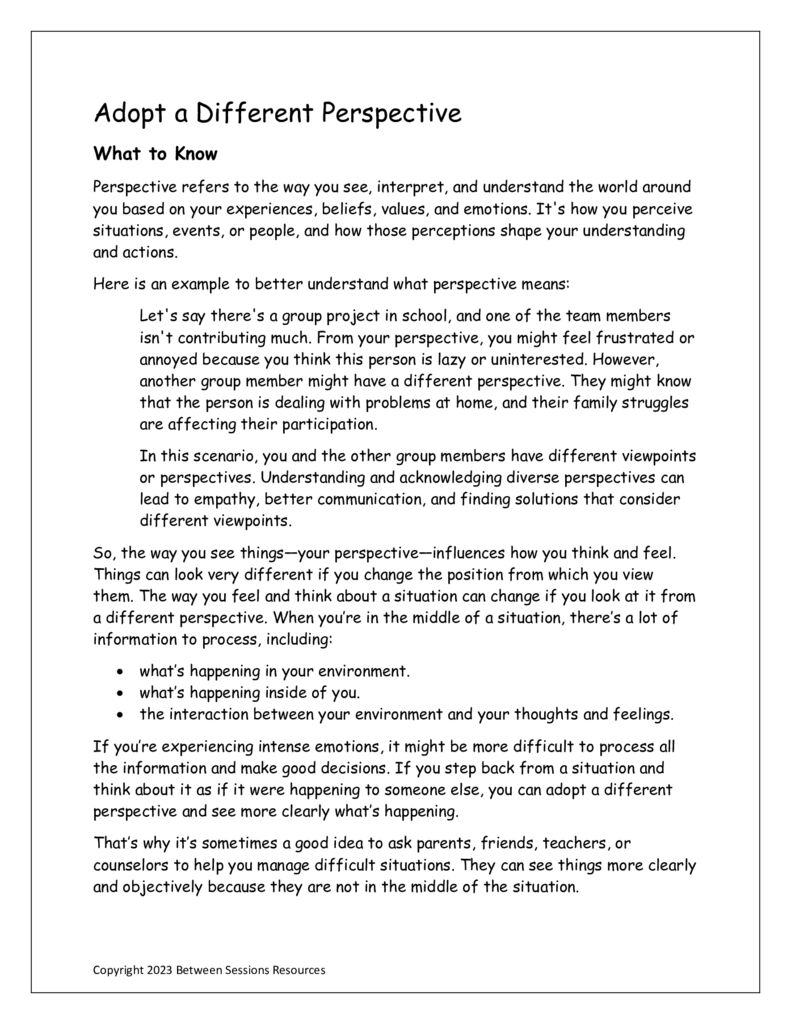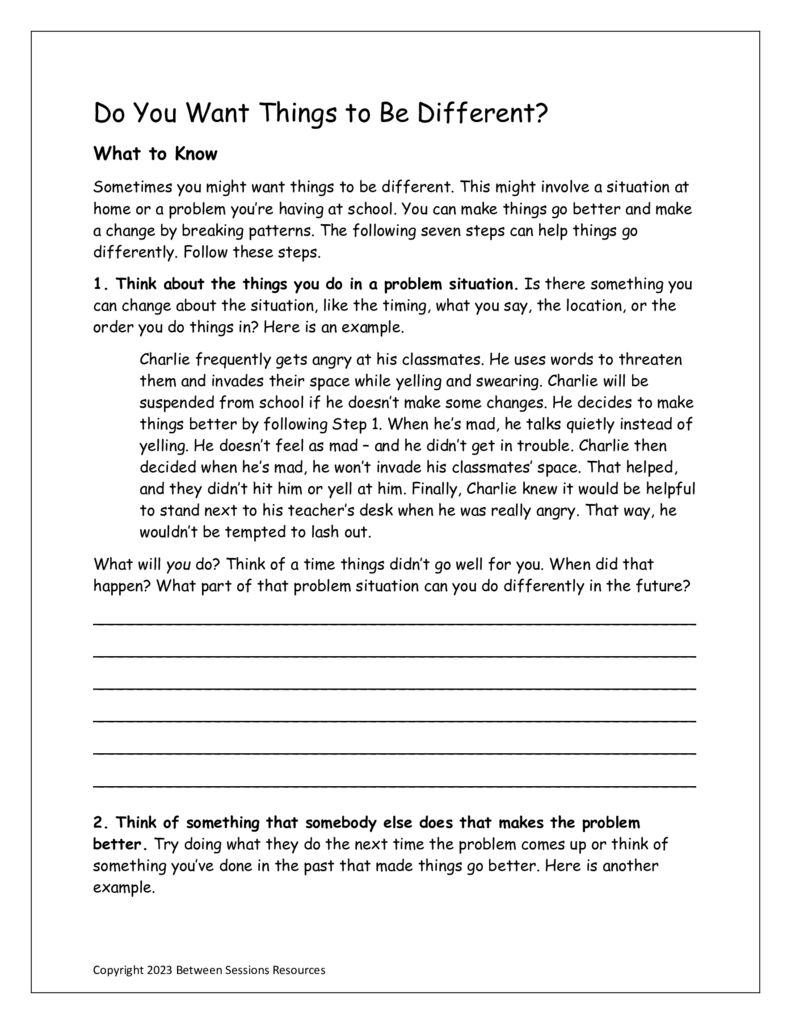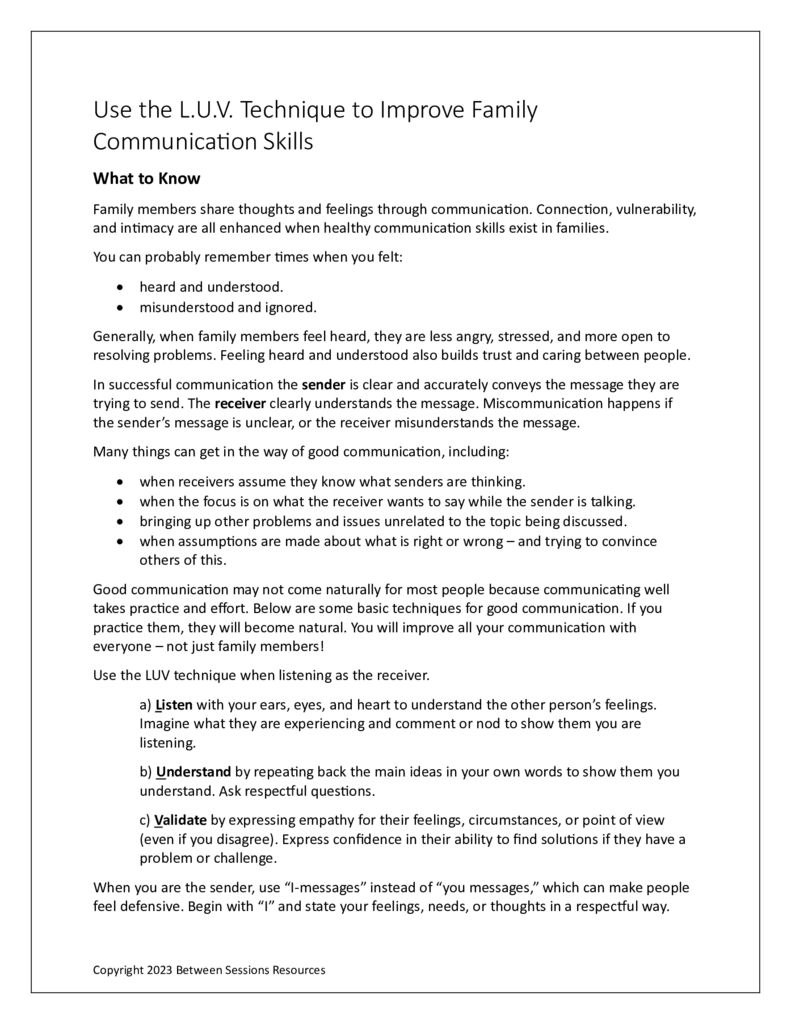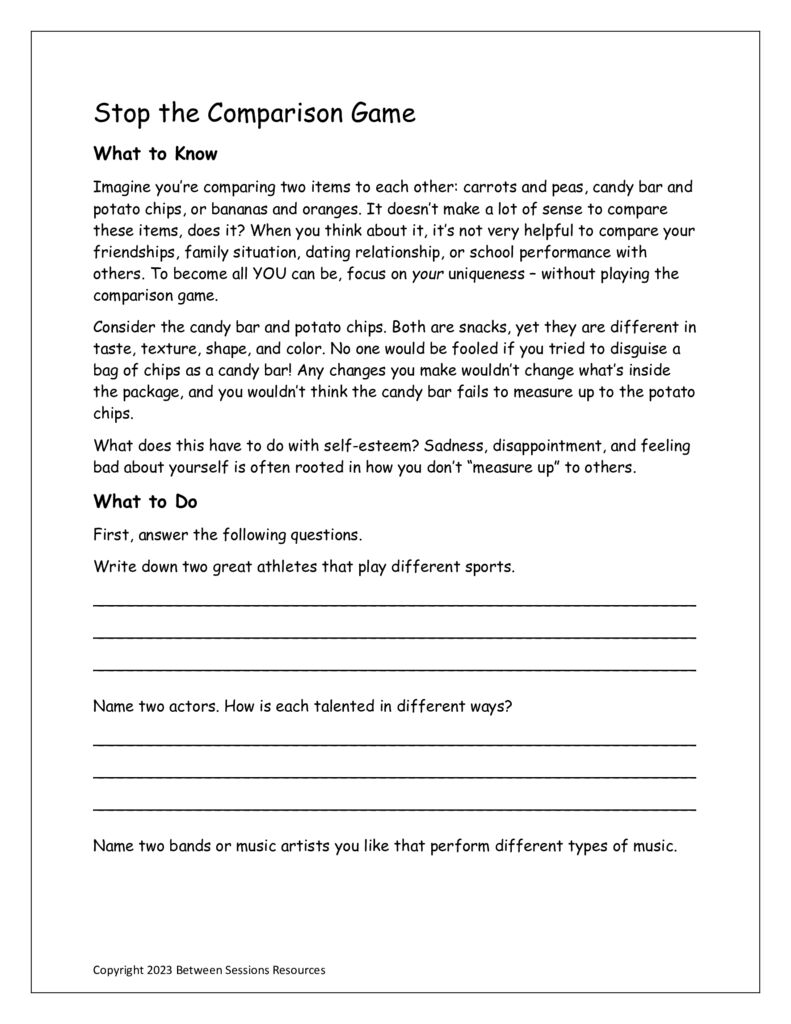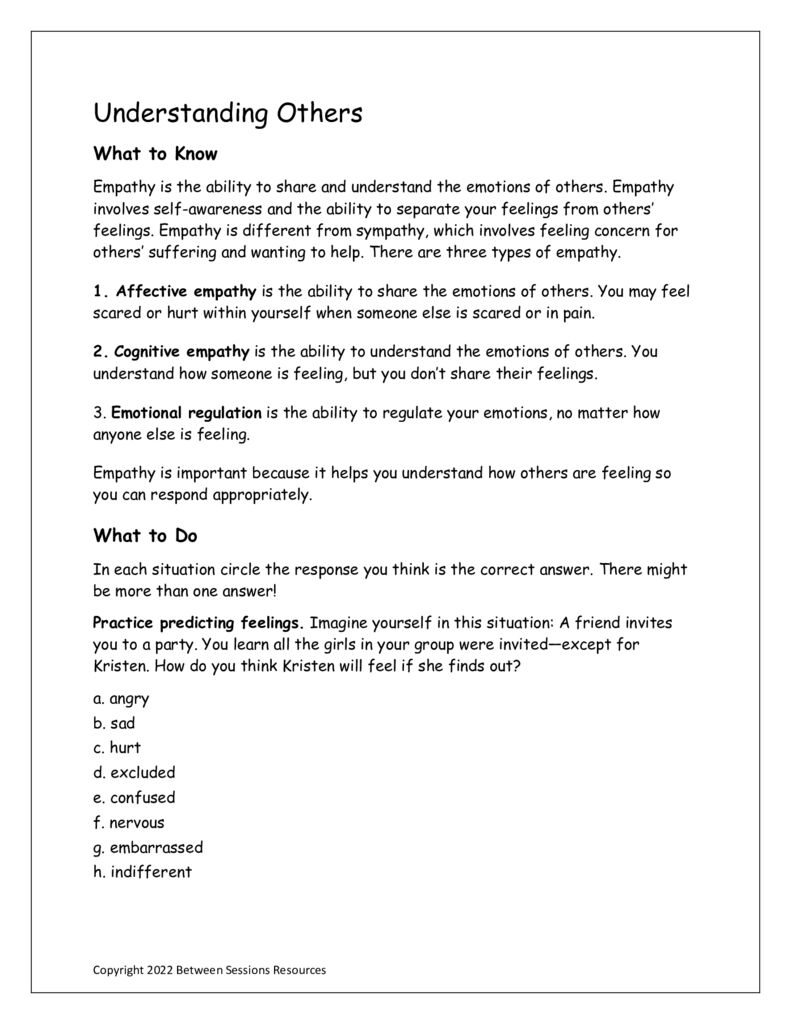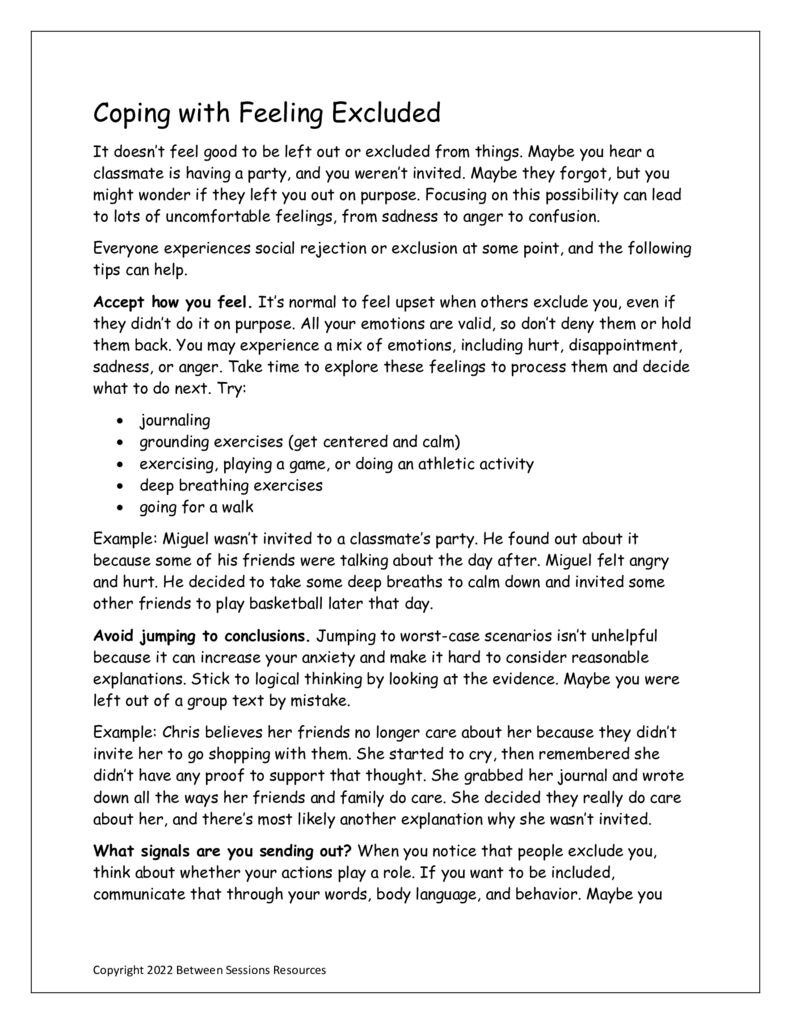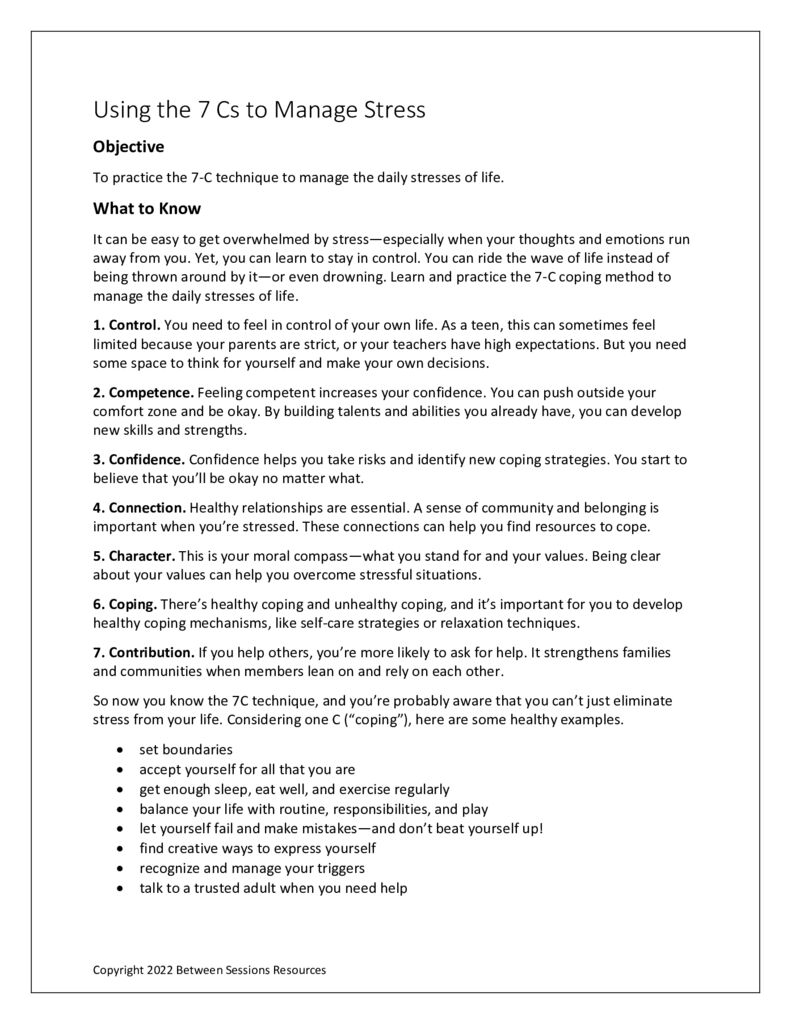This worksheet is designed to help understand the appropriate social efforts they should take when someone they know has suffered a loss. (0224. grief, death, loss, social skills, compassion, empathy)
Written by a teen for teens, this workbook gives kids a toolbox of skills to handle peer pressure while maintaining a positive self-image. 34 pp. (0124. bullying, self-esteem, peer pressure)
This worksheet helps teens understand the various kinds of dysfunctional thinking like catastrophizing, all-or-nothing thinking, discounting the positive, and more. (1123, depression, anxiety, CBT, Cognitive Behavior Modification)
This worksheet is designed to help teens develop empathy and perspective-taking. (1123, friends, empathy, social skills)
This worksheet teaches teens seven strategies to look at their problems differently, including: looking at how others have handled a similar problem, acknowledging feelings, but understanding that they don’t determine actions; communicating with others more effectively. (0323, decision-making, solution-focused therapy, problem-solving, impulse control)
This worksheet was developed to help families develop better communication skills. It describes the LUV technique which teaches family members to Listen, Understand, and Validate. It encourages the use of I-Messages and compliments and discourages negative communication like put-downs and criticism. A chart is provided to keep track of how family members use these tools at a family meeting. (0323, communication, family therapy)
This worksheet is intended to help teens understand that continuously comparing themselves to others can be detrimental to their self-esteem. A chart is used for teens to think about how they have compared themselves to someone they know and how this comparison made them feel. Questions guide teens to find ways to appreciate others without comparing themselves unfavorably. (0123, self-image, self-worth, identity, social skills)
This worksheet teaches teens the different types of empathy and helps them understand how to increase their empathy by reading body language, being compassionate, and listening carefully to others. (1222, empathy, behavior problems, social problems, Asperger Syndrome, ASD)
This worksheet is designed to help teens deal with being excluded. It instructs them to accept their feelings, avoid jumping to conclusions, communicate their needs, pay attention to their strengths, and more. Questions help teens explore the times they have felt excluded and think about what they could have done differently. (1222, social skills, loneliness, peer pressure)
This worksheet describes 7 ways to manage stress. It asks teens to make a mini-poster showing how they might use each coping technique. (0822, coping, emotional regulation, stress)

